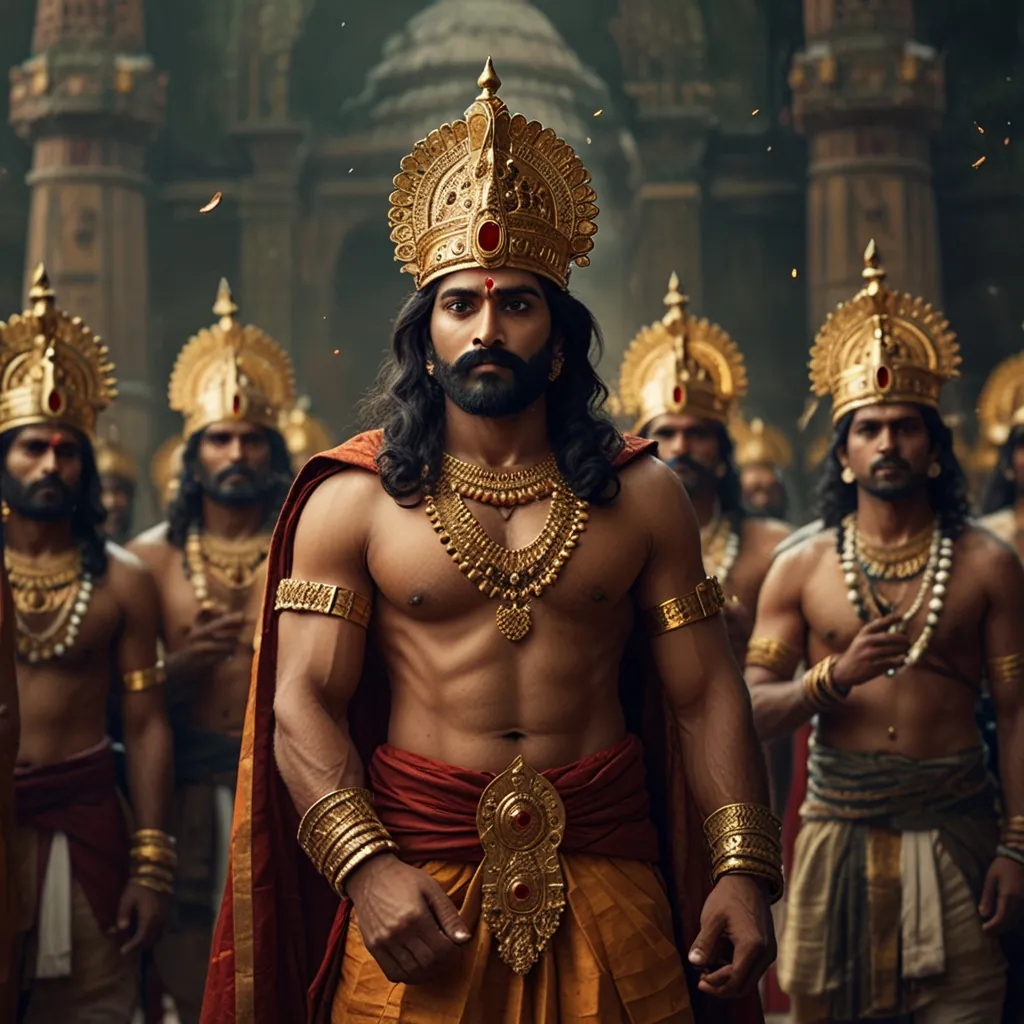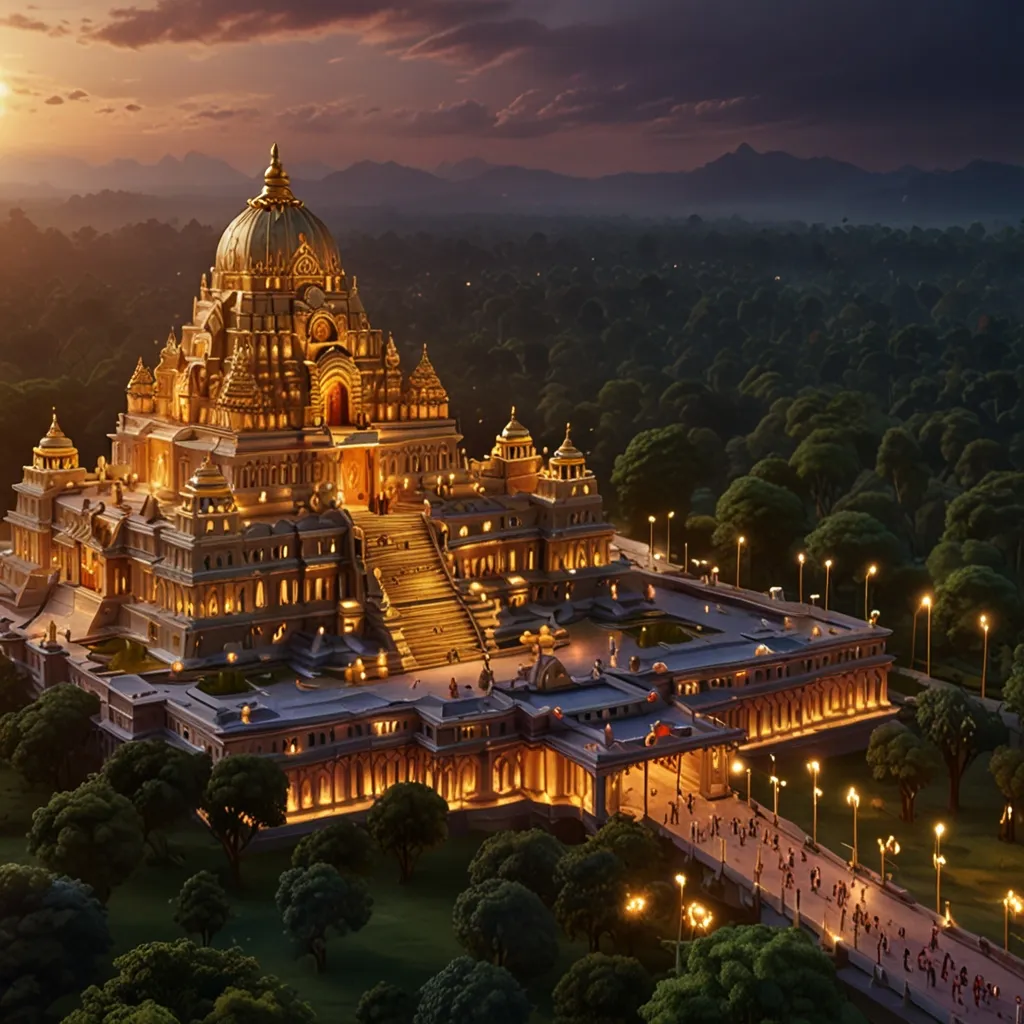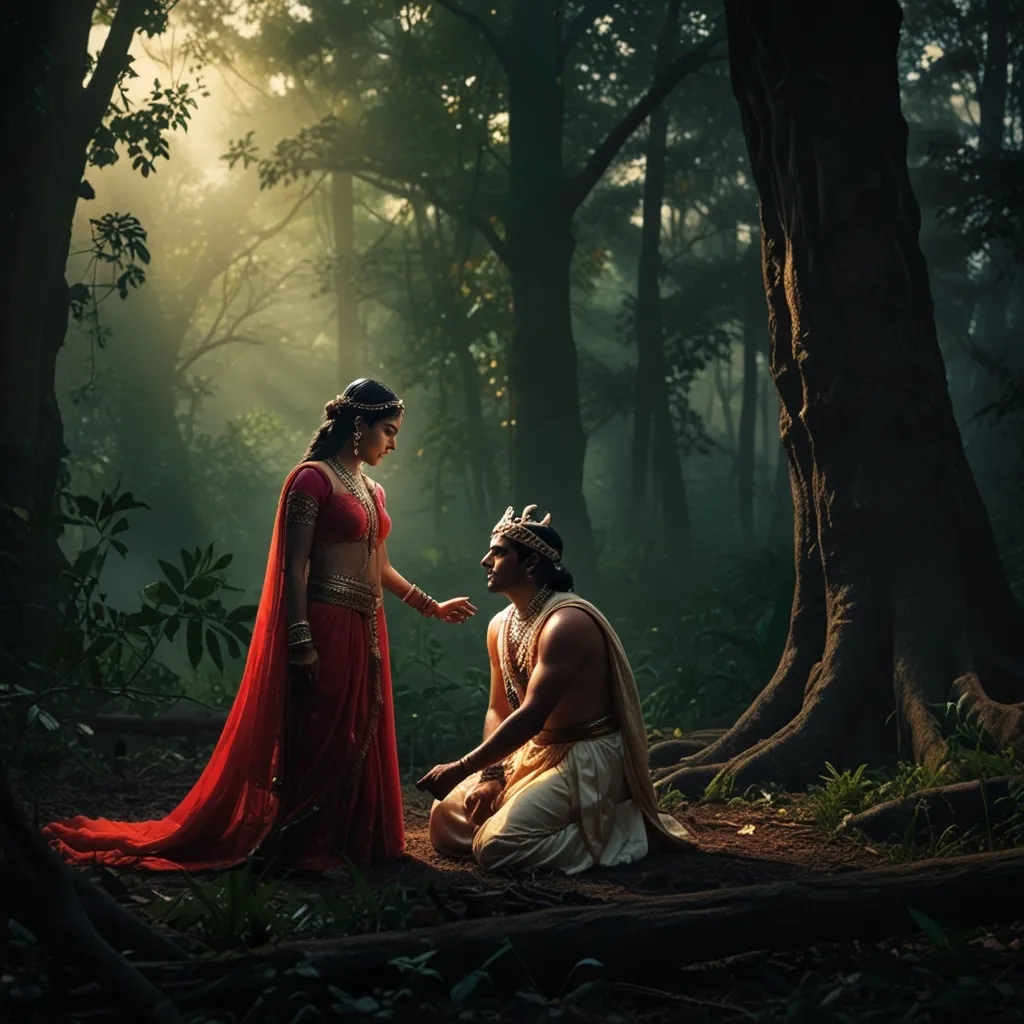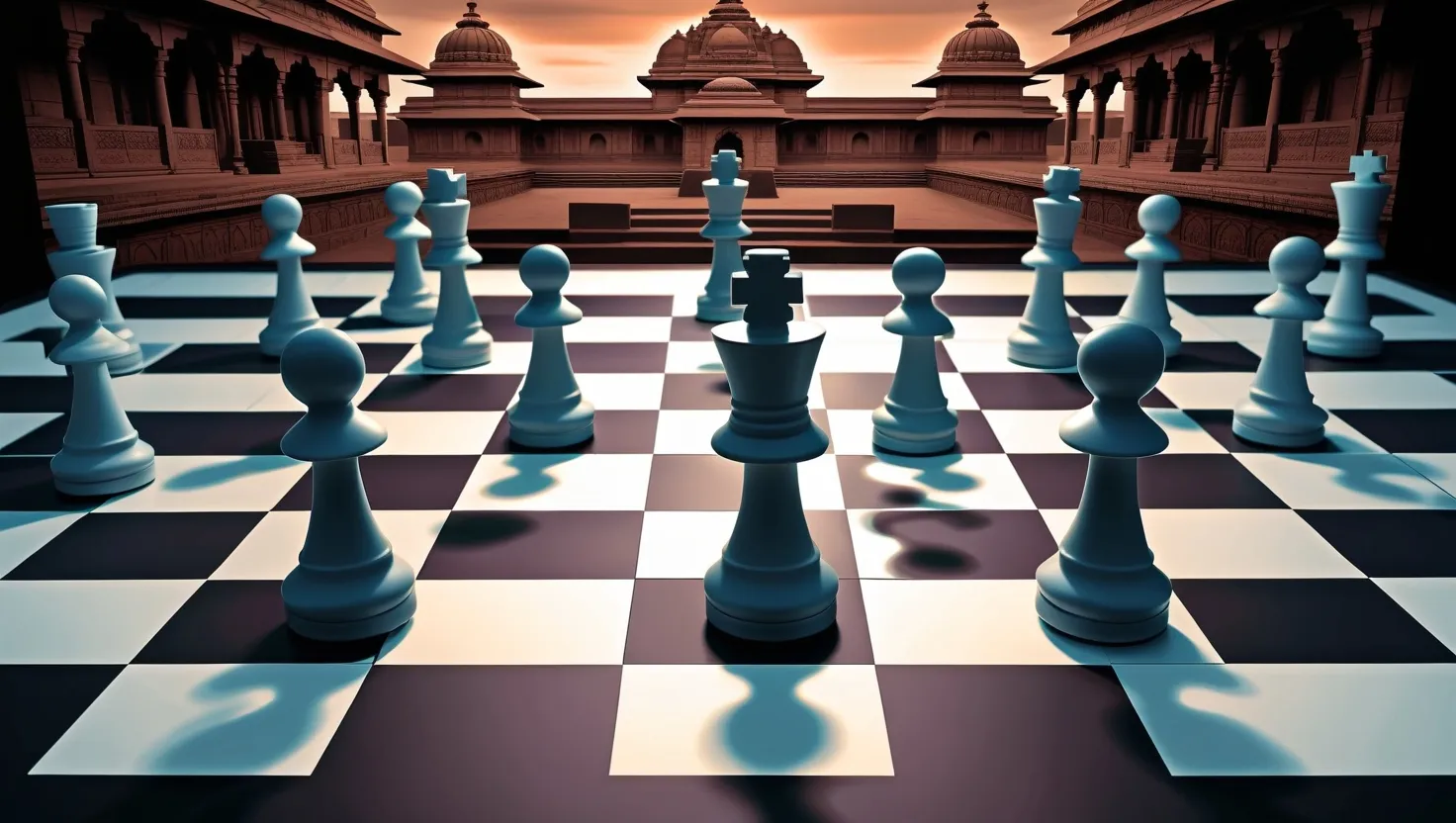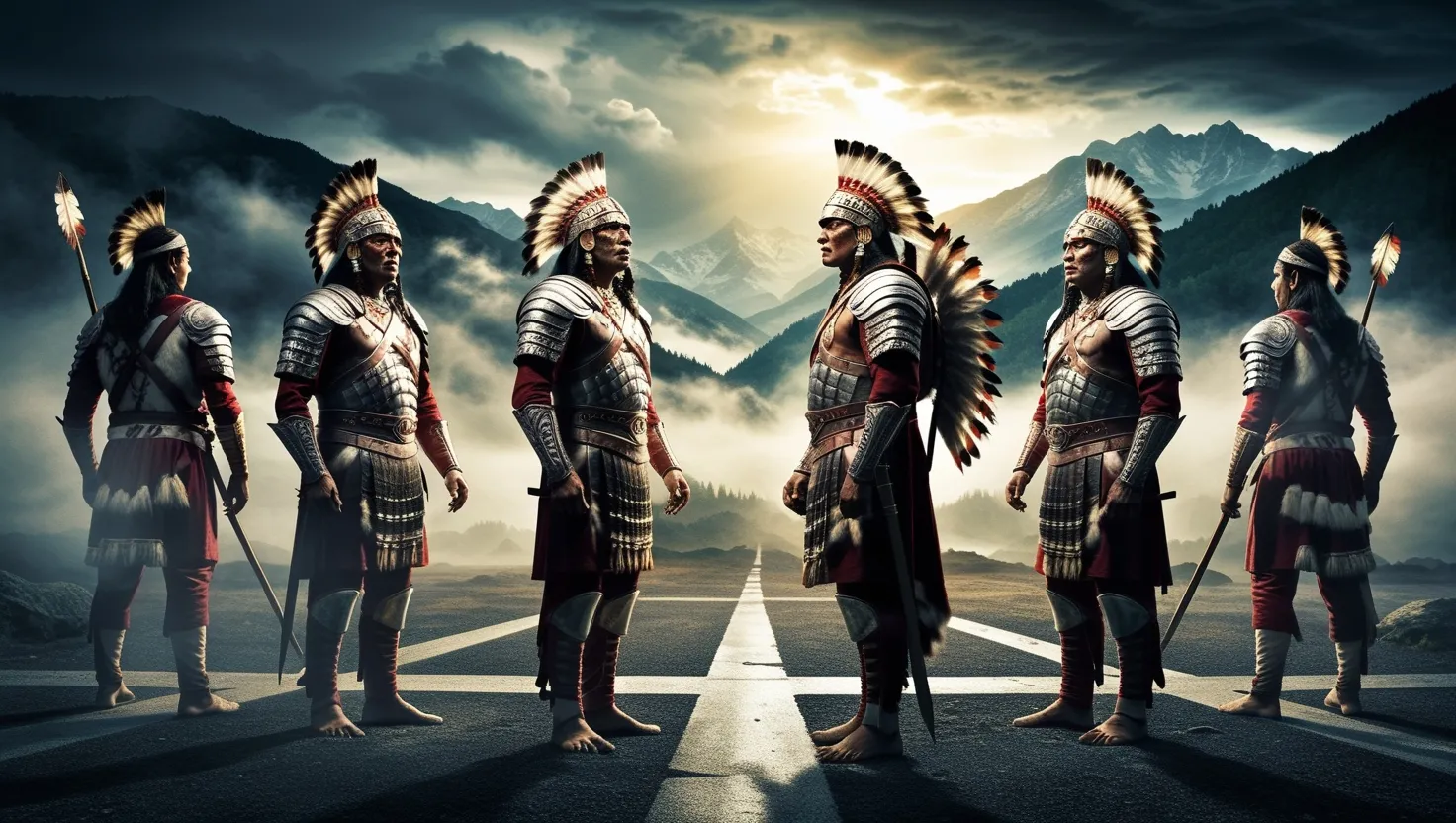In the grand, sprawling epic of the Mahabharata, there’s one moment that shook the foundations of Hastinapura—the coronation of Yudhishthira. This wasn’t just a simple crowning ceremony; it was a pivotal event that sparked a chain reaction affecting everyone in the kingdom. If you think about it, Yudhishthira, being the oldest of the Pandava brothers, was perfect for the job. But not everyone felt this way.
Duryodhana, the eldest son of the blind King Dhritarashtra, was green with envy. He always nursed a grudge against the Pandavas and saw Yudhishthira’s promotion as a threat to his own claim. This jealousy? It eventually led to some pretty gnarly events that took the entire Kuru dynasty for a wild ride.
The coronation itself? Pure spectacle. Imagine all the who’s who of ancient India gathered under one prestigious roof. Yudhishthira, arm-in-arm with his brothers Bhima, Arjuna, Nakula, and Sahadeva, claimed the throne. Their wife Draupadi and their proud mom Kunti beamed from the sidelines. Presiding over this whole affair was Dhaumya Acharya, the sage and mentor to the Pandavas.
Yudhishthira’s smarts and strong sense of justice kicked in immediately. He didn’t waste time making key appointments—Bhima became crown prince, Arjuna was named Commander-in-Chief, while Nakula and Sahadeva got to rule the Madra Kingdom. Even Karna’s son, Vrishakethu, who had missed out on the Kurukshetra battle due to his age, was welcomed and mentored by Arjuna and Krishna.
Post-crowning, Yudhishthira and his clan made a heartfelt visit to Bhishma, who lay gravely wounded on a bed of arrows. Bhishma, with his divine gift to choose his death time, was hanging on for the Uttarayana—the day the sun moves north. Bhishma delivered wisdom-laden talks on kingship and dharma, guiding Yudhishthira through his moral turmoil. He even taught him the Sahasra-Nama, the Thousand Names of God.
These lessons were golden. Yudhishthira, being a man of high integrity, was riddled with guilt and sorrow from the war’s carnage. Bhishma’s counsel gave him clarity and peace, helping him square up to his kingly responsibilities.
Life after the coronation wasn’t all smooth sailing. A series of rituals and ceremonies took center stage. Yudhishthira performed the last rites for fallen warriors like Duryodhana and Karna, praying for their souls to find peace. It was all about wrapping up the bloody chapter and moving forward.
Under Yudhishthira’s reign, wisdom and justice ruled. He often consulted with Dhritarashtra and kept him in the loop about governance, ensuring fairness all around. One of the major highlights of his rule was the Ashvamedha sacrifice—a grand ritual that involved releasing a horse to wander for a year. Arjuna led the Pandava army, following the horse and challenging any king who didn’t submit to Yudhishthira’s rule. This epic journey established Yudhishthira as the top dog, the Emperor of Bharatavarsha.
Challenges crept up like weeds, though. Despite his ironclad commitment to dharma, Yudhishthira had to juggle opposition from various kingdoms and navigate a maze of alliances and rivalries. Politics, right? Still, his dedication to justice earned him massive respect and admiration from his people.
Yudhishthira’s journey is a masterclass in the power of virtue. He stuck to his principles, no matter how messy things got. His coronation marked the dawn of a new era for Hastinapura—one defined by wisdom, justice, and relentless pursuit of dharma. Just think about it: this wasn’t just a tale of ascension to power. It was about holding onto morals in a world where the lines between right and wrong often blurred.
Yudhishthira’s story serves as a potent reminder that leadership isn’t just about sitting on a throne. It’s about bearing the mantle of responsibility with grace, wisdom, and an unyielding commitment to doing what’s right. Sure, he had his helpers and guides like Bhishma, but in the end, it was Yudhishthira’s heart and mind that steered Hastinapura through some of its darkest times.
It’s fascinating to think how this ancient tale still resonates today. The politics, the power struggles, the quest for justice—aren’t these themes timeless? In a way, Yudhishthira’s journey of trials and triumphs could be seen in leaders across different eras and geographies. It’s a testament to the universal and enduring power of virtue, showing us that doing the right thing isn’t always the easiest path, but it’s the one that leaves a lasting legacy.
Moreover, his story underscores the relevance of mentorship in leadership. Bhishma’s wisdom acted as a beacon for Yudhishthira, illuminating the complex landscape of duties and responsibilities. It’s a subtle nudge, reminding us of the importance of learning from those who’ve walked the path before us. The lessons passed down from sagely figures to the next generation? Those are the real treasures.
Reflecting back on Yudhishthira’s reign, it’s clear that his rule wasn’t just a series of political maneuvers. It was about healing a fractured kingdom, making peace with the past, and laying down a foundation of justice for future generations. The rituals he performed for fallen foes? They were more than ceremonies—they were acts of closure, a step towards collective healing. It’s a profound way to look at leadership—not just about conquering lands, but about conquering hearts and minds, even those who once stood as enemies.
So, while the Mahabharata might be framed as an epic battle narrative, Yudhishthira’s part in it is a quiet homage to the virtues we often overlook in our glorification of valor and might. His story is as much about the aftermath of war as it is about the war itself, focusing on the less glamorous, but incredibly crucial, role of rebuilding and leading with virtue.
As the pages of the Mahabharata turn, leaving behind tales of bloodshed and power struggles, Yudhishthira stands out as a beacon of hope and justice. His coronation didn’t just change the political landscape; it redefined what it meant to be a ruler. It taught that true power lies not in dominance, but in the ability to navigate the murky waters of morality and emerge, unscathed with principles intact. Yudhishthira’s legacy is a gentle yet potent reminder that, at the end of the day, it’s not just the battles we win that define us, but also the values we cling to in the aftermath.
